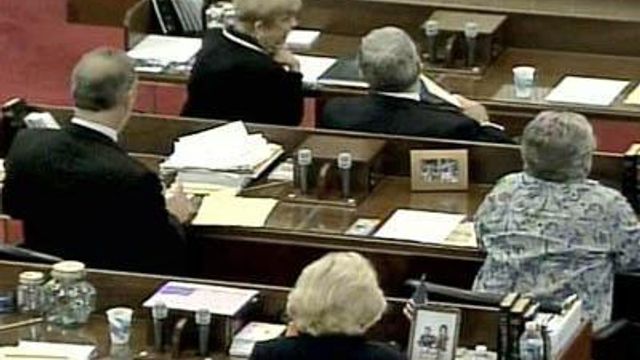Bill would require apologies for slanderous Web posts
"There needs to be a sense of responsibility," said Sen. Steve Goss, D-Alexander. But a Duke law professor said the idea wouldn't work.
Posted — Updated"There needs to be a sense of responsibility," said Sen. Steve Goss, D-Alexander, the sponsor of the bill. "It's about the speed of information and how quickly a person can be irreparably harmed."
Duke University freshman Mary Hannah Ellis said she learned how quickly a reputation can be trashed when posts on the Web site JuicyCampus.com said untrue things about her.
"At first, I really became devastated by it," Ellis said. "It's despicable, honestly."
JuicyCampus.com, which was started by a Duke alumnus, shut down this week, citing adverse economic conditions.
Goss said the initial draft of his bill, which is now before a Senate committee, called for a possible criminal penalty for online libel, but he said he plans to withdraw that section and allow offended parties to pursue civil suits against the posters.
"The bottom line of what I'm looking to do here is not even strengthen the libel laws that are in place but to make sure we are where we need to be," he said. "I personally am not convinced that we are keeping up with this Internet age."
Stuart Benjamin, a Duke law professor, said the Internet is subject to state and federal libel laws, and Goss' idea of requiring online apologies would face legal challenges.
"That's not going to be able to happen because of a federal statute that protects Web sites from liability from what people who post on those Web sites put on those Web sites," Benjamin said.
Another hurdle the proposal could face would be finding out the identity of an anonymous poster, he said.
"To find out who they are, you are going to have to get a court order to that Web site or to their Internet service provider to tell you their identity," he said.
Kevin Davis, a blogger on the Web site "Bull City Rising," said discouraging anonymous posting would have a chilling effect on the Internet.
"Sometimes, there's a real and clear need to have independent voices able to say what's on their mind," especially when questioning government officials and agencies, Davis said.
He said he would like to see more Web sites encourage responsible and productive dialog, "but I'm not convinced that a step like this (bill) is the right way to do that."
• Credits
Copyright 2024 by Capitol Broadcasting Company. All rights reserved. This material may not be published, broadcast, rewritten or redistributed.





